Best Man in the World"He is the best man who, when making his plans, fears and reflects on everything that can happen to him, but in the moment of action is bold." - Since the beginning of time, the world has seen many great men. Great men who have done great things- helping others selflessly, inventing new things making the lives of people easier, fighting for their nation; have put others before themselves, and that's how they have become immortal for a long time to come making space in the hearts of others. Many such people have roamed this planet, which Michael H. Hart has tried to cover in his book 'The 100: A Ranking of the Most Influential Persons in History (1978). We won't be able to incorporate all of them in this article. But some of them who have been very influential and have created an extensive and profound impact on others, an impact which can still be seen and felt, are mentioned below- 1. Buddha (563-483 BCE)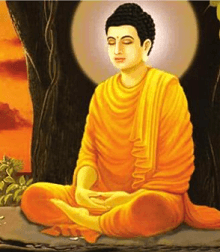
Siddartha Gautama was born in a wealthy family in Lumbini, now Nepal and was brought up in Kapilavastu. He was born a prince who would later become the King of the Sakya people. But one day, when he stepped out of his palace to look at the outside world, the reality of human suffering dawned upon him. According to 'the story of four sights', he saw older people, a deceased man, a festering corpse and an ascetic. These sights moved him to the extent that he left the princely comfort to become a wandering ascetic. After practising meditation under two teachers for many years, he finally attained enlightenment under a peepul tree at Bodh Gaya, Bihar. He became a spiritual teacher and imparted his teachings to his disciples. Those early teachings and texts took the form of Buddhism, which is now a religion followed by millions of people around the globe. This enlightenment process is why he came to be known as 'Buddha', the other name for the 'Awakened one'. His disciples, the Buddhists, propagated the faith of Buddhism. Buddhist tradition believes that there are going to be more Buddhas in the future just as they have been in the past. Different Buddhist schools have differing views with some believing that each historical era will have only one Buddha, while others believe in the philosophy of tathagatagarbha which says that all the creatures will eventually become Buddhas because of their inherent Buddha nature. 2. Muhammad Ibn Abdullah (570 - 632 AD)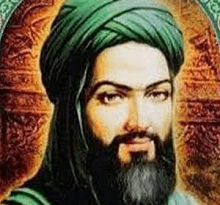
Muhammad ibn Abdullah was born in Mecca in the year 570 CE to Abdullah Ibn Abd Al-Muttalib and Amina ben Wahb. He is widely known as an Arab religious, social, and political leader and was the creator of the world religion of Islam. According to Islamic theology, it is believed that he was a prophet who was inspired to preach and confirm monotheistic doctrines. He is believed to be an incarnation of God. Muhammad brought together Arabia into an all-encompassing Muslim political system through his teachings, which took the form of the Quran (the Islamic Holy Book), and rituals were the foundation of the Islamic religion. 3. Jesus Christ (c.5BC - 30 AD)
Jesus was the child of Joseph and Mary, born shortly before the death of Herod the Great somewhere between 6 BCE and 4 BCE. He was born in Bethlehem, Judea, south of Jerusalem. He was also known by the name of Jesus from Nazareth (also known as Jesus Christ). He was a 1st-century Jewish preacher and leader of the religious community. He is the main persona in Christianity, the world's largest religion. According to Christian doctrines, Mary (Jesus' mother) was impregnated with Jesus while she was still a virgin. It is believed to be an act of God himself. It's a popular Christian belief that Jesus was an incarnation of God, who is the long-awaited messiah as prophesied in the Hebrew Bible. He was a noble soul who helped others, performed miracles, and was regarded as the founder of the Christian Church. He was betrayed by one of his twelve apostles, Judas Iscariot, who disclosed his whereabouts for thirty pieces of silver. Consequently, Jesus was arrested by the Romans and crucified. 25 December, every year, is celebrated as Christmas symbolising the birth of Jesus Christ. Good Friday is celebrated to honour his crucifixion, and Easter Sunday to signify his resurrection. The world's most widely used calendar era--in which the current year is 2022 AD/CE--is based on the approximate birth date of Jesus. The calendar that is used worldwide is based on the birth date of Jesus Christ (it is 2022 AD i.e., anno domini, Latin for, year of the lord). 4. Aristotle (384 BCE-322 BCE)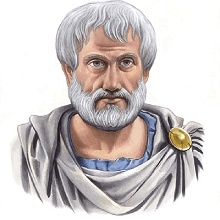
"Time crumbles things; everything grows old under the power of Time and is forgotten through the lapse of Time." - Aristotle (Physics) Sure, it does. But Aristotle's wisdom has made him live on through the passage of more than 2400 years. Aristotle was born in 384 BC in Macedonia, Ancient Greece, and is regarded as one of the most important and influential thinkers of all time. His role as a philosopher, polymath and natural scientist has contributed to various fields, including Science, Politics, Philosophy, Economics and Psychology. He was a student of Plato, and in his academy, he learnt about the various philosophical traditions and theories. He was an independent thinker who impressed Plato with his ability to think logically and rationally and solve difficult problems. His curiosity about the world around him and his hunger for knowledge is what made him such a brilliant student. Aristotle's greatest contribution was his promotion of logic and rational arguments, which he used in many of the various fields of his study. Aristotle is believed to have written around 170 books. However, only 47 of these books survive to the present day. Aristotle studied botany, philosophy, medicine and optics. He was also a strong lecturer and debater. Aristotle was also a playwright who described how man's weaknesses - anger, pride, and jealousy - could lead to his demise. Aristotle believed that reason could illuminate man's problems. He believed that every person could enlighten himself through self-inquiry, study, and introspection. He has had an enormous impact, with almost all the fields of study having some component of his findings in their theoretical background. 5. William Shakespeare (1564-1616)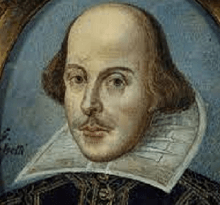
"To be or not to be- that is the question"; that is one such question we're all well-acquainted with. This is the opening line of a soliloquy by Prince Hamlet in Shakespeare's famous play 'Hamlet'. William Shakespeare was a literary genius born in Stratford-upon-Avon, England, in 1564. He was an exceptionally talented writer, poet and playwright who uplifted the world of literature to another new level. He wrote around 154 sonnets (love poems) during the 1590s. His prolific writing and observation skills were evident in his work, which soon became popular because it intrigued people and incited controversy at times. The plays like Much Ado About Nothing and A Midsummer's Night Dream, written by him early, were mainly comedies. Later, he began writing tragedies like Romeo & Juliet, Hamlet, Macbeth, The Tempest and King Lear, among others. His plays were not only commercially successful but also extremely deep and intricate, providing insight into the darker aspects of human life. No wonder he is regarded as the national poet of England and is popularly called 'The Bard of Avon'. 6. Confucius (551 BCE-479 BCE)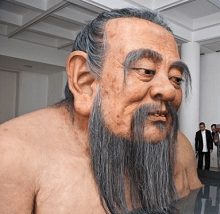
Confucius, a Chinese philosopher and politician from the Spring and Autumn periods, is often regarded as the paragon among Chinese sages. Confucius's philosophy and teachings remain influential in East Asian society and culture and are still relevant today. Confucius was born in Lu, China, on 28 September 551 BCE. It is a province under the Zhou Dynasty near Qufu. Confucius' father died when he was a little child, three years old. He was a soldier in the army. His mother nurtured his love for learning and his desire to seek wisdom. He sought out teachers from a young age who could teach him all aspects of life, which led to his proficiency in archery, ritual music, calligraphy and charioteering. He also studied poetry and history. Confucius was particularly fascinated by the moral and cultural precepts called 'Li. Confucius created his own philosophy, which he passed on to others. Confucianism is today the name of his philosophy. It is followed and revered like a religion in the Eastern parts of the world. Confucianism can be described as a holistic way of thinking and living. It includes ancestor reverence and a deep human-centred religiousness. It emphasizes the importance of morality and personal ethics. These ideas became the core philosophy of Chinese culture but this popularisation happened many years after his death. Confucianism, today, is followed by more than 6.1 million people. 7. Isaac Newton (1643- 1726)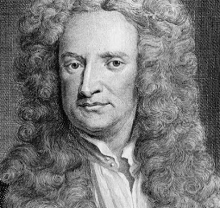
Sir Isaac Newton (1643- 1726) was an English scientist who was also a mathematician and a physicist. He was born in the year 1643 in a relatively poor family. His father expired before he was born, and when his mother remarried, he couldn't get along well with his stepfather. He completed his schooling at King's School in Lincolnshire, where he passed flying colours, and was admitted to Trinity College, Cambridge. There he pursued his interests- mathematics, physics and science. He was a genius who could solve even the most difficult of problems. He used to devote almost all his time to studies out of sheer interest and love for the subjects. He didn't even have time for romance and remained single throughout his life. Newton was a great polymath. His work in developing new laws of mechanics and gravity, as well as laws of motion, is widely recognized. His Principia Mathematica (1687) set the stage for the Scientific Revolution (17th Century). His investigations also covered optics, religion, and alchemy. 8. Albert Einstein (1879 - 1955)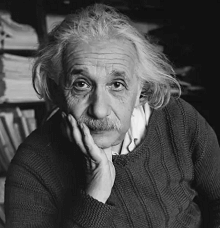
Albert Einstein was born in Ulm, Germany, in the year 1879. He first lived in Switzerland and then shifted to the United States along with his family after Hitler gained power. He is one of the most prominent scientists of the Twentieth century. His theories of relativity provided the foundation for a new branch in physics. Einstein's formula for mass-energy equivalence, E=mc2, is one of the most important and well-known formulas in the world. He was honoured with the Nobel Prize in Physics in 1921 for the development of Quantum Theory and his contributions to theoretical Physics. Einstein is also known for being an original free-thinker who spoke on various global and humanitarian issues. After helping to develop nuclear physics theoretically and encouraging F.D. Roosevelt into starting the Manhattan Project, he raised his voice against the use of nuclear weapons as they could lead to mass destruction, just like in WWII. Einstein was truly a global man and one of the greatest geniuses of the 20th century. 9. Ashoka (269 BCE to 232 BCE)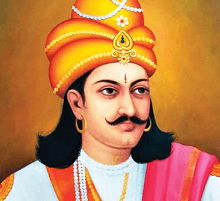
Ashoka was an Indian Emperor of the Maurya Dynasty who lived from 269 BCE to 232 CE in the third century B.C. He was a powerful king who ruled over an area that covered most of the Indian sub-continent and sought to increase his power and kingdom after he took the throne. He launched a bloody, destructive campaign against Kalinga on India's east coast. Ashoka's army was responsible for the deaths of many thousands of people. After seeing the destruction and bloodshed as an aftermath of the war, he realized the immense suffering he had caused. He was moved by his remorse and decided to change his course by converting to Buddhism, eventually, giving up his wars for conquest. He became committed to the Buddhist principle of non-violence. He built many Buddhist temples in the Indian sub-continent and established hospitals and schools for the poor. He became a great propagator of peace. His enlightened leadership and concern for his people earned him high praise throughout his life. It was one of the most extraordinary transformations by any political leader. Later, he was called 'priyadarshin' (He who is kind to everyone). In 1947, Independent India adopted his 'Ashokachakra' as its symbol. 10. Galileo Galilei (1564-1642)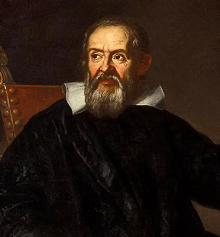
Born in 1564 in Pisa, Duchy of Florence, Italy, his family was poor but noble. After recognising their child's intelligence, his parents sacrificed a lot to get him educated. Galileo became a mathematics professor at the University of Pisa but was isolated because of his criticism for Aristotle's theories, which had been a dominating force in education for the past 2000 years. He left the University after three years of teaching and went on to teach at the University of Pauda. He was highly appreciated there, and that's when he pursued his interest in astronomy and mechanics. Galileo also made important discoveries regarding gravity and inertia. He also created the precursor of the thermometer. Galileo worked on the pendulum clock. He also studied the science of Gnomonics, which tells time by shadows. Galileo reached the same conclusion as Copernicus: that the sun is the centre of the universe, not the earth. Galileo also loved Johannes Kepler's work on planetary motions. He went on to invent the first powerful telescope in the world, which allowed him to conduct many ground-breaking explorations of the universe. He played a significant role in the scientific revolution. His most important scientific work was Two New Sciences on kinetics and the strength of the material.
Next TopicBest South Indian Movies
|
 For Videos Join Our Youtube Channel: Join Now
For Videos Join Our Youtube Channel: Join Now
Feedback
- Send your Feedback to [email protected]
Help Others, Please Share









